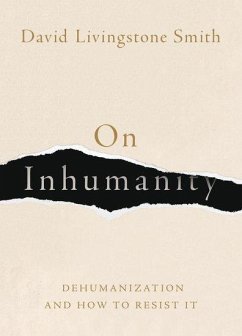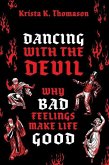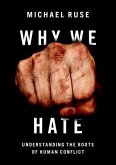Throughout the darkest moments of human history, evildoers have convinced communities to turn on groups that are regarded as in some way other and, by starting to think of them as less than human, persecute or even eliminate them. We can all recognize the unfathomable evils of dehumanization in slavery, the Holocaust, the Rwandan genocide, and the Jim Crow South, but we are not free from its power today. With climate change and political upheaval driving millions of refugees worldwide to leave their homes, we are likely to see more and more of this ugly and persistent phenomenon. What are we to do? Drawing on his deep and wide-ranging knowledge of the history, psychology, and politics of dehumanization, David Livingstone Smith shows us how to recognize it and how to fight back.
Hinweis: Dieser Artikel kann nur an eine deutsche Lieferadresse ausgeliefert werden.
Hinweis: Dieser Artikel kann nur an eine deutsche Lieferadresse ausgeliefert werden.








